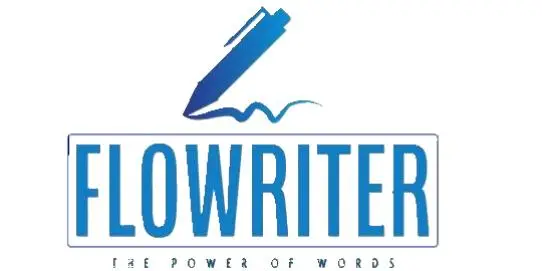“The wise person doesn’t give the right answers; they pose the right questions.” Claude Levi-Strauss
Think about it — how often do you pause and really dig deep into what makes you tick?
In our fast-paced world, taking time to ask ourselves meaningful questions can be a game-changer for personal growth and fulfilment.
By engaging in self-reflection and introspection, we gain insights into our true desires, values, and goals. This process improves self-awareness and enhances our life experiences and satisfaction.
Let’s take a look at how the quality of our lives is powerfully influenced by the questions we ask ourselves. How they reshape your perspective, boost your decision-making skills, and even rewire your brain for the better.
The Benefits and Power of Self-Reflection
Regular introspection is a powerful tool for cultivating self-awareness.
When we pause to examine our thoughts, emotions, and behaviours, we better understand who we are and what drives us.
This self-awareness acts as a catalyst for personal growth, allowing us to make choices that connect with our true selves and values. As we become more attuned to our inner world, we can identify patterns that may hold us back and work towards positive change.
This heightened awareness also enhances our relationships as we become more empathetic and understanding of others.
Self-reflection is not just about analysing the past; it’s a tool for creating a better future. By blending this practice into our daily lives, we can take on challenges with clarity and resilience, ultimately leading to a more meaningful and enriched life experience.
Types of Questions that Promote Well-being
Asking the right questions can significantly impact personal growth and well-being.
Open-ended questions, like “What are my passions?” encourage exploration and deeper understanding, while closed questions can limit responses.
Forward-looking questions, such as “What steps can I take to achieve my goals?” help us envision and plan for the future.
On the other hand, backward-looking questions, like “What lessons can I learn from past experiences?” play a significant role in providing valuable insights and encouraging growth.
They allow us to reflect on our past actions and learn from them, contributing to our personal development.
Challenging assumptions is crucial for expanding our perspectives; questions like “Is this belief serving me?” help us break free from limiting thoughts.
Transformative questions stimulate introspection and inspire change. Examples include “What truly matters to me?” which clarifies values, or “How can I contribute to others’ lives?” which encourages a sense of purpose.

The Role of Questions in Decision-Making
Asking the right questions is crucial for effective decision-making. When we frame decisions as questions, we gain clarity and insight into our options and potential outcomes.
For instance, asking, “What are the pros and cons of this choice?” encourages a balanced evaluation of the situation.
Questions like “How does this align with my values?” ensure our decisions reflect our true priorities and desires. But it’s not just about making the right choice. This approach also empowers us to avoid impulsive decisions that we might regret later.
We can reduce the risk of regret by considering different perspectives and potential consequences. Techniques such as scenario planning and “what-if” questions help us anticipate and prepare for challenges effectively.
By making decision-making a thoughtful process guided by meaningful questions, we sweeten our ability to steer through life’s complexities with confidence and purpose, ultimately leading to more fulfilling outcomes.
Good questions are like good friends — they don’t judge; they just help you see things more clearly.
Mindfulness Through Questioning
Mindful questioning is a powerful tool for staying present and engaged in life.
By asking questions like “What am I experiencing right now?” we develop awareness of our thoughts, emotions, and surroundings. This practice helps anchor us in the present moment, reducing stress and anxiety.
Mindful questioning encourages an attitude of curiosity and openness, allowing us to appreciate the current moment. It shifts our focus from dwelling on past regrets or worrying about the future to fully engaging with the here and now.
By asking, “How can I be more present in this moment?” we develop a deeper connection to ourselves and others, enhancing our relationships and overall well-being.
This approach encourages contentment and gratitude, helping us find joy in everyday moments.

Overcoming Negative Self-Talk
Negative self-talk can be a significant barrier to personal growth, but reframing these thoughts into constructive questions can create positive change.
Instead of succumbing to self-doubt with questions like “Why can’t I succeed?” we can ask, “What steps can I take to improve?”
This shift in attitude encourages problem-solving and resilience, empowering us to overcome challenges. By focusing on solutions rather than limitations, we break the cycle of rumination and self-criticism.
Constructive questioning helps us identify opportunities for growth and learning, transforming setbacks into stepping stones.
It promotes a mindset of self-compassion and understanding, allowing us to treat ourselves with kindness and patience and to understand that personal growth takes time.
Questions for Goal-Setting and Motivation
Questions play a crucial role in clarifying goals and maintaining motivation.
By asking, “What do I want to achieve?” we can better understand our personal and professional objectives.
This clarity helps us set specific, measurable goals that match our values and aspirations. Regular self-inquiry keeps us connected to these goals, ensuring they remain relevant and motivating.
Questions like “Why is this goal important to me?” reinforce our commitment by linking our actions to our core values and desires. By asking, “What steps can I take today?” we break down goals into achievable tasks, maintaining momentum and progress.
Regular reflection on questions such as “How am I progressing?” allows us to celebrate achievements and adjust strategies as needed.
This ongoing process of self-inquiry helps us stay focused and motivated and fosters a sense of purpose and fulfilment in our journey toward achieving our dreams.
Potential Pitfalls of Excessive Self-Questioning
While questioning is beneficial, it’s important to balance reflection with action.
Excessive self-questioning can lead to overthinking and analysis paralysis. By setting boundaries on introspection and focusing on actionable steps, we can avoid these pitfalls and maintain momentum in our personal growth journey.
It’s important to recognise when self-reflection becomes counterproductive and to take proactive steps to shift our focus towards action and implementation.
By prioritising our goals and breaking them down into manageable tasks, we can create a sense of progress and accomplishment, boosting our motivation and confidence.
Seeking feedback and support from others is not a sign of weakness but a strategy for gaining valuable perspectives and insights, which can help us make informed decisions and overcome obstacles.
Ultimately, we want to reap the benefits of self-inquiry without becoming overwhelmed by it.
Asking meaningful questions can genuinely change our lives. By reflecting on our thoughts and choices, we learn more about ourselves and what we really want.
This self-discovery helps us make better decisions, stay present, and overcome challenges.
Balancing thinking with action is important for our growth and for enjoying purpose and happiness in our lives.
Embrace this journey of self-questioning to find more purpose and happiness in your life. Reflect often, act with intention, and watch your life transform.








